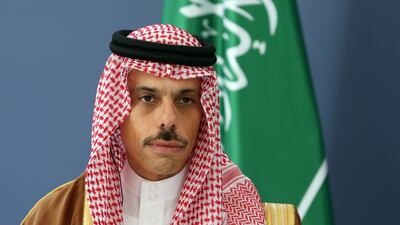Saudi Arabia's Foreign Minister Prince Faisal bin Farhan has said Iran’s ongoing nuclear research had created a “very dangerous” situation in the region. He made the remarks at the World Policy Conference in Abu Dhabi on Sunday.
International efforts led by the US, EU, Russia and China to revive a 2015 nuclear deal with Iran — which would see UN inspectors monitor Iran’s nuclear programme in exchange for relaxing trade sanctions — have largely broken down.
"If Iran gets an operational nuclear weapon, all bets are off," Prince Faisal bin Farhan said in an on-stage interview.
"We are in a very dangerous space in the region...you can expect that regional states will certainly look towards how they can ensure their own security."
Prince Faisal said the kingdom might still be open to an agreement with Iran, "on condition that it be a starting point, not an end point" for a stronger deal with Tehran.
"We hear from the Iranians that they have no interest in a nuclear weapons programme, it would be very comforting to be able to believe that. We need more assurance on that level," he said.
The International Atomic Energy Agency, the UN’s nuclear watchdog, has accused Iran of failing to explain traces of “man-made” uranium at a number of sites visited by inspectors, where Iran said no nuclear research had been conducted.
Analysts say this implies Iran had previously failed to disclose prohibited nuclear research, including the enrichment of uranium to a purity close to what is required for a nuclear weapon. Iran has more than 60 kilograms of uranium enriched to 60 per cent, according to the IAEA.
Experts say that while 90 per cent uranium is usually required to make a nuclear bomb, the construction of a nuclear weapon is still possible with 60 per cent enrichment and that more than 60 kilograms would be enough for one device, providing Iran can overcome remaining technical hurdles.
Those include testing a device and making a nuclear warhead small enough to fit onto a ballistic missile.

